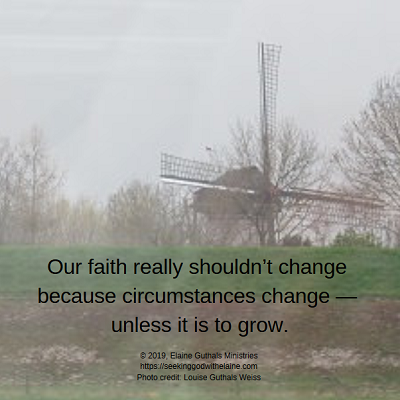Now there was a man called Joseph, a member of the Council, a good, upright man, who had dissented from their policy and action they had taken. He came from the Judean town of Arimathaea, and he was one who looked forward to the kingdom of God. This man now approached Pilate and asked for the body of Jesus. Taking it down from the cross, he wrapped it in a linen sheet, and laid it in a tomb cut out of the rock, in which no one had been laid before.
Luke 23: 50-53 (NEB)
Scripture: Mark 16: 1-11
There is a lot of information in Luke 23: 50-53. It is especially true when we add them to the verses from the other gospels and to what we know about the culture. This devotion explores what we know about Jesus’ burial.

Who Was Joseph of Arimathaea?
Joseph of Arimathaea was a prominent member of the Sanhedrin. Luke described him as “… a good, upright man, who had dissented from their [the Sanhedrin] policy and action they had taken” (Lk. 23: 50 NEB).
Matthew called Joseph a rich man (27: 57). This fulfilled scripture. “He [Jesus] was placed in a grave with those who are evil, he was buried with the rich, even though he had never committed a crime or ever told a lie” (Isa. 53: 9 GNT).
Joseph’s beliefs were described in either one of two ways. The first description identified him as a disciple. John indicated Joseph tried to keep his beliefs a secret (19: 38).
The second description recognized Joseph as someone who awaited God’s kingdom. We know a lot of the Israelites were awaiting God’s kingdom but didn’t believe Jesus was the Messiah.
I would guess, for a council member to ask for the body of the Man the council had condemned to death, Joseph really was a disciple. To me, though, the two terms are not mutually exclusive.
Joseph Asked for the Body
Think of the courage it had to take for Joseph to ask for the body (Mk. 15: 43). Yes, he probably had to clamp down on the fears of going public to his fellow council members.
But Joseph probably was also a little queasy about going to Pilate. I mean, this was the governor who condemned Jesus to death. Joseph was taking a public stand on the opposite side of the issue. He would have been human if he considered how this was going to affect his future.
What Was a Standard Burial in Those Days?
Luke wrote that “… the Sabbath drew near (23: 54 NKJV). Jesus died approximately three hours before the beginning of Sabbath. While that may have rushed things and caused them to do just the bare minimum, Jesus was respectfully laid to rest. Even if the body wasn’t washed and anointed, it was wrapped in linen and spices.
The spices were supplied by Nicodemus. He was also a member of the Sanhedrin whom we met in John 3. He had a good talk with Jesus one night about being born again.
What Do We Know About Tombs?
The fact that Joseph was rich is verified by the fact that he had a tomb “hewn out in the rock” (Mt. 27: 60; Mk. 15: 46; Lk. 23: 53). A more common tomb was a cave. Poor people were buried in potter’s fields.
Because of it being hewn also signifying it was polished, it is probably safe to assume Joseph meant to use this tomb himself. It was a tomb “… in which no one had been laid before” (Lk. 23: 53 NEB).
The tomb was near to where Jesus was crucified in a garden. This was verified in all four of the gospels. It would have been outside the city because contact with the dead would have made the Jewish person ceremonially unclean.
A stone was rolled against the door of the tomb. This was unusual but think about it. Wasn’t the tomb much more secure that way? Surely someone couldn’t escape a tomb with a stone in front of the door! It made Jesus’ death seem more permanent.
The tomb was sealed; however, more than likely that was just a string. The most important job the seal performed was to show no one tampered with the body.
The seal was beneficial, though. When the seal was placed, the inside of the tomb would have been checked. It would have been verified that Jesus’ dead body was interned.
Guards were also placed outside the tomb. Four soldiers guarded the tomb for three hours.
It seems to me that this is a lot of people to make sure a dead Man stays in the grave. But you know, it is also providing a lot of witnesses that the Man was actually, truly dead.
The Women Were Witnesses
There were two other witness to verify that Jesus was in the tomb. Mary Magdalene and Mary the mother of Joses also were present at the tomb. Yes, they were Jesus’ believers, but through all of this, more than just His disciples verified that Jesus really was dead.
That is a lot of background information. But other than interesting to know, what can we take away from Jesus being in the tomb?
How Do We Apply This?
What do we do when Jesus is in the tomb? What do we do when it seems all hope is lost? What do we do when it seems like God has taken a vacation and our prayers haven’t been invited? What do we do when the Holy Spirit isn’t comforting?
It has long been said that we should keep on keeping on. When you keep on keeping on, you stay in your routine.
A routine is something that you do frequently, if not every day. It is an established pattern. So you keep praying. You keep reading your Bible. You keep attending worship.

But don’t we hear that you don’t want to get stuck in the routine? You don’t want it to loose its meaning.
Could breathing be considered routine? Could eating be considered routine? You do that every day. Instead of loosing its meaning, it is life giving.
Could staying in the routine just be considered staying faithful? Our faith really shouldn’t change because circumstances change — unless it is to grow. We shouldn’t lose our faith because things get hard. Faith shouldn’t take a hike because it seems like God did. Faith should keep on keeping on.

So, when it seems like the Three in One are in the tomb, keep on keeping on. They will be back — because they aren’t really gone.
Father. You are the One to whom we talk. Son, You are the reason we can talk. Holy Spirit, You are how we talk. When it seems that You are in the tomb again and out of our lives, it is because we have put you there. Help us to keep in our routines of seeking You. Help us to remain faithful and not get discouraged. Show us what is acting as the stone to seal You in the tomb out of our lives so we can ask You to remove it. We wait to be in sweet fellowship with You again. Amen.
What do you think? Do you think it is advantageous to keep in a routine during those silent times? Or is it better for you to change things up? Leave me a comment below (about this or anything else) or head over to my Facebook group for some interactive discussion.
If you have not signed up for the email daily or weekly providing the link to the devotions and the newsletter, do so below.
If God has used this devotion to speak with you, consider sharing it on social media.
Pingback: Does God Ignore Sins? – Seeking God with Elaine